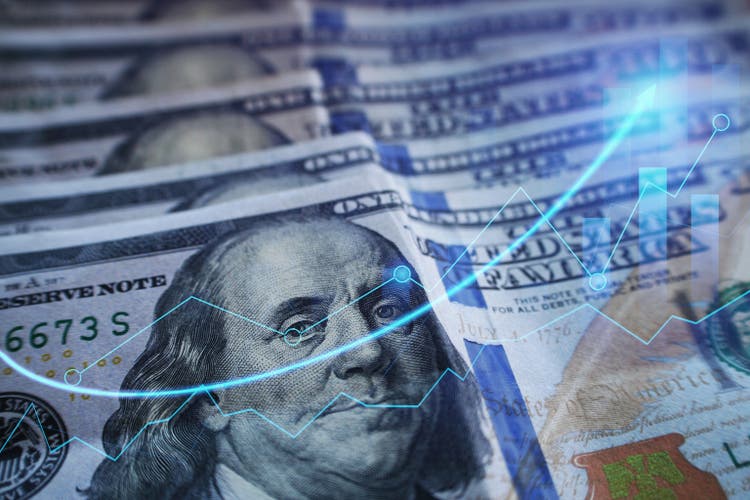Darren415
The US dollar has picked up momentum throughout the year and is currently the strongest it has been in decades. When the dollar gets stronger other currencies grow weaker, and right now, it is leading the pact against the euro, British pound, and Japanese yen.
While a ‘strong’ US dollar sounds like a good thing, it raises a few questions like, what is influencing its strength? What does this mean for consumers? Does this help or hurt investors? All questions you’re probably wondering too, so let’s get answers.
What’s influencing the US dollar’s strength?
At a high level, we’re dealing with the same factors influencing the volatile financial markets. There are concerns around the global economy and fears of a recession, ongoing supply chain hurdles (in part to China continuing to fight Covid with lockdowns), the war in Ukraine and subsequent energy crisis, all of which are happening on top of high global inflation.
To understand why today’s factors are influencing the dollar, it’s helpful to take a step back and break down what is known as ‘The Dollar Smile’. This theory states that the value of the US dollar will increase or decrease in comparison to other currencies depending on the health of the economy.
With this logic, and when measured against other countries, the dollar strengthens during periods of a healthy economy and when the economy is extremely weak, like a recession. Today, the dollar is strong due to the US economy being in a stronger state than other countries, which is in part to the Federal Reserve.
The Fed is contributing to the strength of the dollar with its policy commitment to fight inflation by raising interest rates at a more aggressive pace. This is seen as a positive when compared to other economies and policies. Therefore, the US dollar is viewed as a stable currency due to the central banks’ willingness to step in and take action. Since the US dollar is considered a stable currency, it’s the dominant global reserve currency held in central banks across the world, opening the door to a pool of borrowers.
All in all, today investors are seeking the dollar as a more secure asset, and is believed to be a haven, which is an asset that can retain money during a downturn.
How does a strong dollar help consumers and investors?
The dollar is a main currency used in trade for goods whether countries are buying from the US or not, for example, food and energy are priced in dollars, so this standard practice creates more demand for the currency.
For importing countries, a strong US dollar and a weaker domestic currency makes it more expensive to import goods leading to price increases spurring inflation. This follows the concept that a stronger dollar exports inflation to those importing markets.
And right now, the US is benefitting from a strong dollar potentially bringing prices down since the cost of importing goods and services is cheaper. This should help buffer some inflation impacts – although it will have little effect on domestically produced goods. This benefit also applies to international travel as US travelers have more purchasing power overseas. So, that Europe trip you’ve rescheduled multiple times in the past few years? Now is the time to go to take advantage of the power of the dollar – in return, you’ll be getting more for less.
Investors are also impacted by the strength of the dollar. Along the same lines of countries importing more expensive goods, companies who do business outside the US may face lower revenues, earnings, and stock prices as those sales will be worth less. However, international stocks become a bargain and open the opportunity to diversify portfolios.
There’s no crystal ball to know how long the dollar’s strength will persist, but while it’s doing well, don’t wait to take that Europe trip.
Editor’s Note: The summary bullets for this article were chosen by Seeking Alpha editors.


Be the first to comment